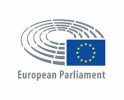In this 2012 study for the Foreign Affairs Committee of the European Parliament I argue that the conflict over the Transnistrian region dates back to the end of the Soviet Union and the establishment of an independent Moldovan state. However, until recently very little tangible progress has been made towards a sustainable conflict settlement. With the resumption of official talks in the 5+2 conflict settlement process, the Transnistrian issue is now relatively high up on the political agenda of all the parties involved, and the need for maintaining this current positive momentum and developing creative solutions has taken on added importance.
This study adds to existing publications by offering an up-to-date analysis of the situation in Moldova and the Transnistrian region, placing it in a wider regional context and examining the positions of the key actors in the conflict settlement process. Against this background, and drawing on an analysis of existing proposals for conflict settlement, it offers a number of suggestions how a sustainable settlement could be achieved, emphasising the need to focus on outcomes that ensure a viable Moldovan state. On this basis, recommendations are made about future EU engagement with Moldova, the Transnistrian region, and the partners in the 5+2 conflict settlement process.
This report is an open-access publication.

